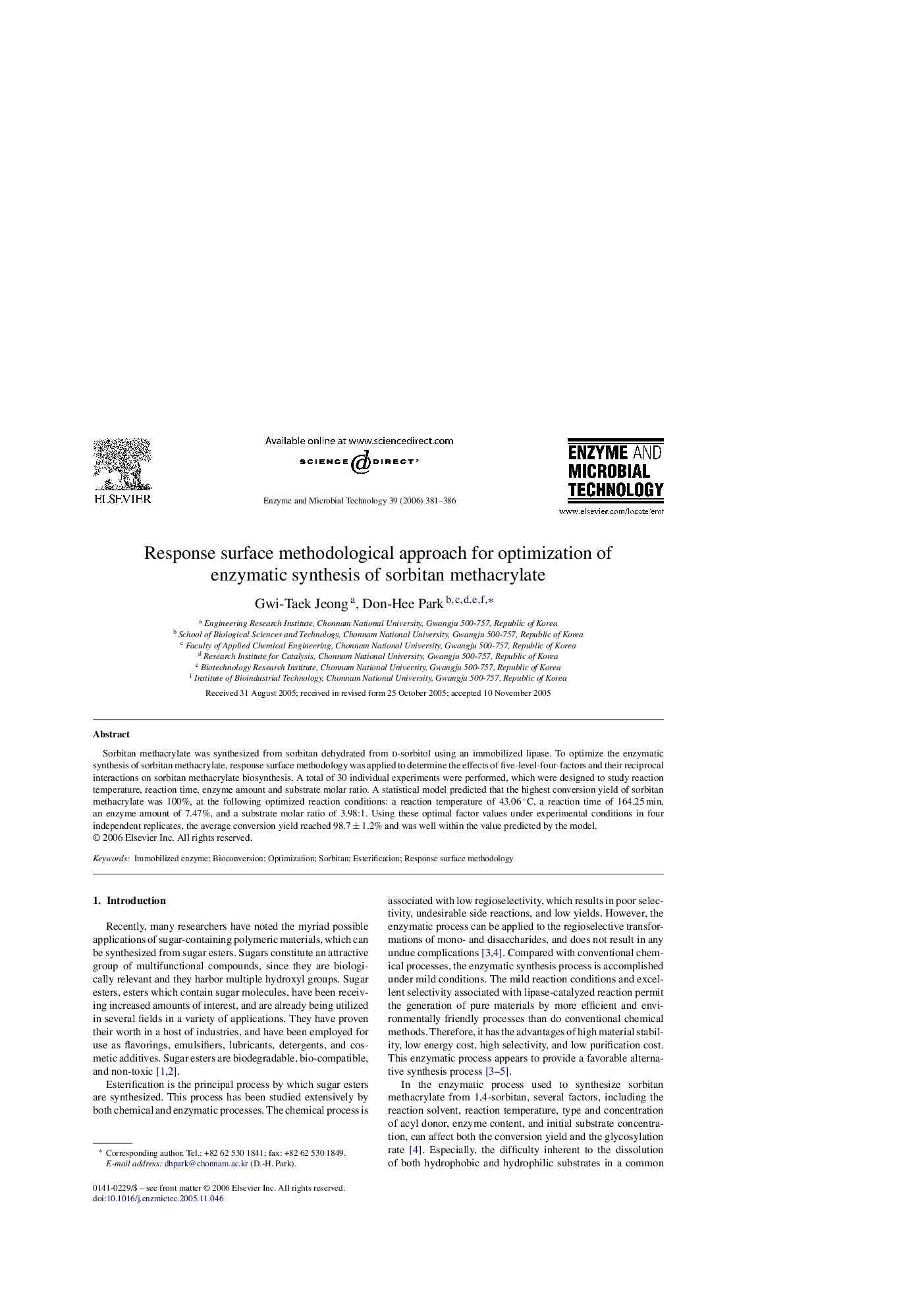| Article ID | Journal | Published Year | Pages | File Type |
|---|---|---|---|---|
| 18431 | Enzyme and Microbial Technology | 2006 | 6 Pages |
Sorbitan methacrylate was synthesized from sorbitan dehydrated from d-sorbitol using an immobilized lipase. To optimize the enzymatic synthesis of sorbitan methacrylate, response surface methodology was applied to determine the effects of five-level-four-factors and their reciprocal interactions on sorbitan methacrylate biosynthesis. A total of 30 individual experiments were performed, which were designed to study reaction temperature, reaction time, enzyme amount and substrate molar ratio. A statistical model predicted that the highest conversion yield of sorbitan methacrylate was 100%, at the following optimized reaction conditions: a reaction temperature of 43.06 °C, a reaction time of 164.25 min, an enzyme amount of 7.47%, and a substrate molar ratio of 3.98:1. Using these optimal factor values under experimental conditions in four independent replicates, the average conversion yield reached 98.7 ± 1.2% and was well within the value predicted by the model.
